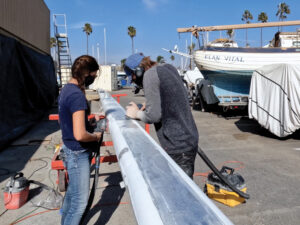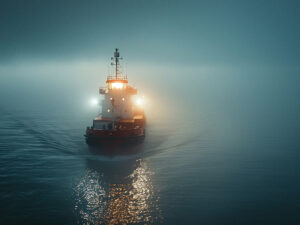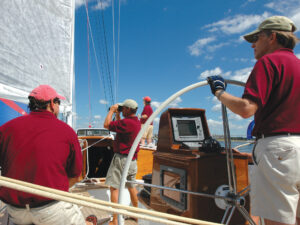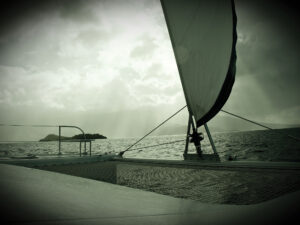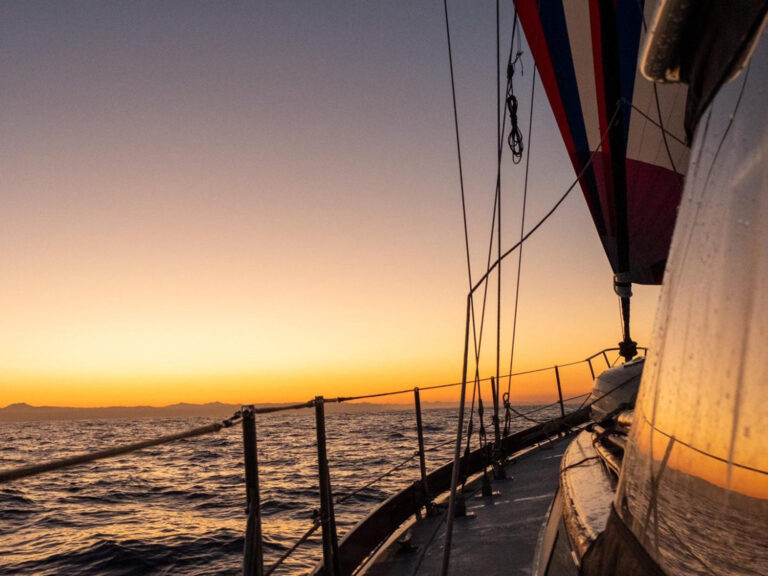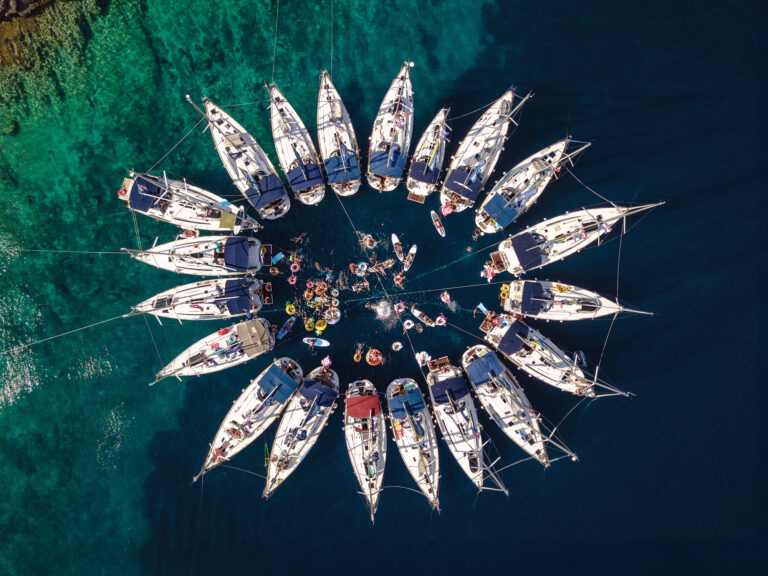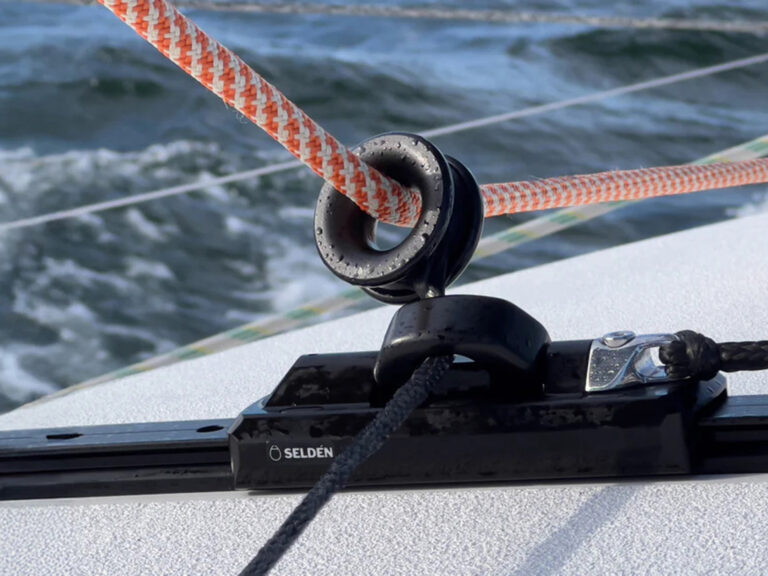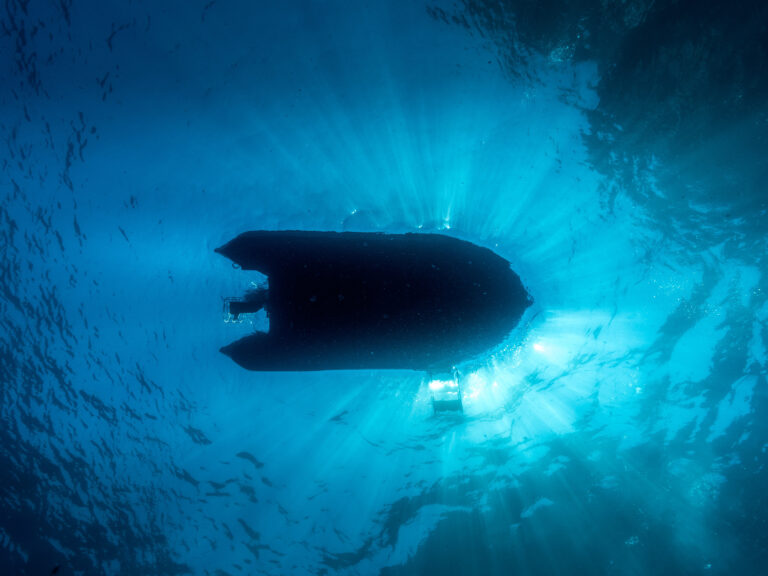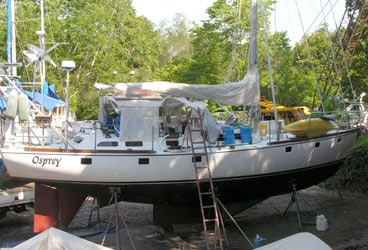
Osprey on the Hard
Most cruisers would be challenged to find a silver lining anywhere in the vicinity of a clogged commode. And the clog on Osprey, our 45-foot steel cutter, was epic, the kind of monster that can break a person after two days of wrestling with head hoses, which seem to wrap themselves around fittings like hungry anacondas.
Johnny, my husband, finally concluded that the only way to extract the offending hose was to remove the holding tank. That Vietnam War phrase about bombing the village to save it started to have real meaning. Then, with the tank out and the hose laid bare, bad plumbing was suddenly the least of our worries. Under the tank was a section of hull to which we’d never had access where water—probably just small splashes from people doing daily stuff like washing faces and taking showers—had trickled down and collected along a stringer. There it sat and did what water and steel do best together: produce rust.
The consequences of our haulout at Astillero Magdalena, located a few miles upriver from the marina where we were spending hurricane season on the Río Dulce, were startlingly immediate. As I watched Carlos, a young, skilled welder, cut an eight- by eight-inch hole out of the side of my home, I reflected on my love/hate relationship with steel as a boatbuilding material. In fact, I started entertaining notions of recreational vehicles and K.O.A. campgrounds. The ordeal sent our spirits plummeting.
But then, a glimmer of hope. It was clear right away that this place was far more than just a boatyard. Built by Abel Ramirez, a fisherman who needed a place to haul his workboat years ago, and operated by him and his son Abel Jr., it was also the family compound. As such it was an ever-changing study in the juxtapositions of traditional and contemporary Guatemalan life as well as work and pleasure. A small, wood-frame house with an outdoor, wood-fired cookstove was the center of the hillside property, while attached to it was a more modern home, brightly painted and immaculately kept. Nearby stood an enormous work shed, an engine and machine shop, and a two-story building that housed the laundry, showers, parts department, and office. It wasn’t unusual to see Alejandra, the matriarch, folding clothes or playing with a grandchild, while 10 feet away, four or five grease-stained men labored over a huge Detroit Diesel undergoing a rebuild. While the Travelift—75 tons of gleaming, brand-new hoisting chutzpah—lumbered around the lower yard, kids bathed the family dogs at the water spigot. Every afternoon, the kids played a rousing game of fútbol, which seemed to have very few rules, no real boundaries, and only one goal net.
In the early morning, while the local fishermen launched their slim cayucos from the landing next to the yard’s railways, the air would fill with the sounds of roosters crowing, birds singing, dogs barking, and, soon, the rumble and fuss of a busy boatyard. At midday, children streamed from the school next door, racing past in their dark trousers and skirts and white blouses. In the late afternoon, dragonflies peppered the sky, hundreds of them hovering just above the boats’ masts, and down the street in the village of San Felipe, pool balls clattered under the tin roof of the open-air watering hole.
I hadn’t realized that we’d insulated ourselves at the marina; we certainly had never meant to. But this sudden change of scenery was like a door opening into a culture we’d only glimpsed until then. My continuing Spanish education grew daily thanks to gentle help from the yard staff, and the fútbol tribe immediately welcomed our kids. Every afternoon they came home sweat-soaked, filthy, and grinning ear to ear, sometimes carrying sliced oranges sprinkled with a delicious, musky spice whose name I still don’t know.
When the work was finished, we were truly sad to leave. And I was grateful for clogged heads and unexpected clouds, and the silver linings we otherwise might never have seen.
After a winter in the San Blas, where the Osprey_ kids played more beach baseball than boatyard fútbol,_ Osprey_ will head for Cartagena, Colombia._

